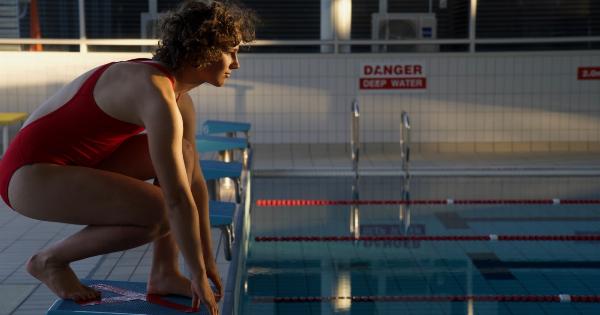Many of life’s successes depend largely on our level of determination. People who are more determined are better equipped to deal with setbacks, handle risky tasks and overcome obstacles.
However, maintaining high levels of determination can be challenging, particularly when we face difficulties, exhaustion, or boredom.
Now, researchers have found that there might be a way to boost determination through brain stimulation. This revolutionary finding could be a game-changer in the field of sports psychology, motivation studies, therapy, and even education.
What is Brain Stimulation?
Brain stimulation refers to the process of using electric or magnetic fields to increase or decrease brain activity in specific areas of the brain.
Electroencephalography (EEG), Transcranial Magnetic Stimulation (TMS), and Transcranial Direct Current Stimulation (tDCS) are three types of non-invasive brain stimulation techniques that have gained popularity in cognitive sciences.
Research has shown that these techniques can be used to trigger a variety of brain functions such as memory, focus, learning, and even mood. And now, there is evidence that brain stimulation could also be used to boost determination.
How Does Brain Stimulation Boost Determination?
Researchers have found that stimulating the dorsolateral prefrontal cortex, a part of the brain responsible for voluntary control of behavior, can affect motivational processes that contribute to an individual’s determination levels.
A study published in the Journal of Neuroscience reported that the participants who underwent transcranial magnetic stimulation (TMS) over their dorsolateral prefrontal cortex were more determined to finish a task, and they also performed better than those who received a placebo treatment.
Another recent study found that applying transcranial direct current stimulation (tDCS) over the same area of the brain for 20 minutes led to an increase in self-reported levels of motivation and determination compared to the placebo group.
These findings suggest that dorsolateral prefrontal cortex stimulation may increase the brain’s ability to regulate goal-oriented behavior and increase determination.
What are the Impacts of Brain Stimulation on Determination?
The benefits of brain stimulation don’t stop there. In addition to increasing determination, the technique has also been shown to:.
1. Improve concentration: Studies have found that ultra-high-frequency rTMS to the prefrontal cortex improved working memory and concentration in patients with ADHD.
2. Enhance cognitive function: Some evidence suggests that tDCS can be used to enhance cognitive abilities in healthy individuals.
While researchers are yet to establish a causal link, the findings suggest that it has potential in cognitive optimization.
3. Reduce Depression: According to some studies, TMS stimulation of the dorsolateral prefrontal cortex could be used to treat depression, in which the affected part of the brain is underactive.
These ongoing studies show the potential benefits of brain stimulation and its impacts on human behavior.
Brain Stimulation for Athletes and Motivation
One area that is particularly exciting for researchers is the potential application of brain stimulation in sports psychology.
Top-level athletes are known to have exceptional levels of determination and motivation, which help them to perform at their best on the global stage.
If brain stimulation could be used to increase the determination levels of athletes, this could lead to better performances, better endurance, and potentially more significant achievements.
Some researchers think that the use of brain stimulation in sports psychology could be a future trend, and there is evidence to support this claim.
Arto Nurmikko, a professor of neuroscience from Brown University, suggested that athletes could use tDCS stimulation during training to improve concentration and goal-directed behavior.
He argued that the stimulation could offer advantages for athletes in competition by improving their focus and intellect on the field.
Researcher studied a group of elite athletes and tested their determination levels before and after transcranial direct current stimulation (tDCS).
They found that stimulation significantly increased their motivation and determination compared to a placebo group.
These findings suggest that brain stimulation could be a significant step in improving the performance of athletes and sportspersons.
The Future of Brain Stimulation and Determination Research
Although the evidence supporting brain stimulation’s potential for improving motivation and determination is compelling, researchers say there are still many unknowns.
Questions remain as to how long the effects of stimulation last and how individual differences shape responses to brain stimulation.
Scientists are also searching for the optimal stimulation dose that maximizes the effects while minimizing any potential side effects.
Despite the challenges, researchers are excited about the potential benefits of brain stimulation, particularly when used to boost determination, which could significantly impact different fields of study.
As the technology advances, scientists are likely to uncover even more potential applications, which makes brain stimulation one of the most exciting frontiers in human behavior research.
Conclusion
Brain stimulation is an exciting new frontier in cognitive sciences research, with implications for everything from sports psychology to depression treatments to education.
Researchers have found that the stimulation of the dorsolateral prefrontal cortex can boost determination, increase concentration, and cognitive function, and improve mood.
Although the technology is still relatively new, scientists are excited about the potential it offers for changing millions of peoples’ lives.
As the possibilities grow, researchers will continue to investigate how brain stimulation can be used to optimize and enhance human behavior and hopefully tap even more potential in each of us.






























